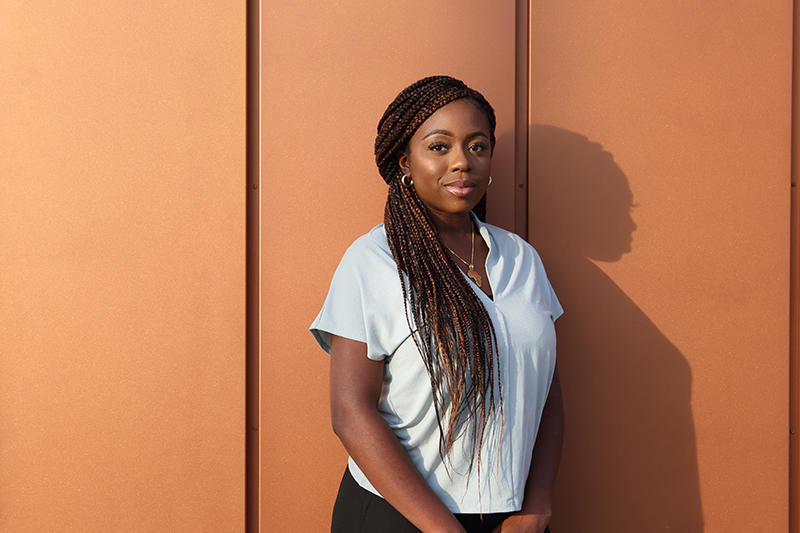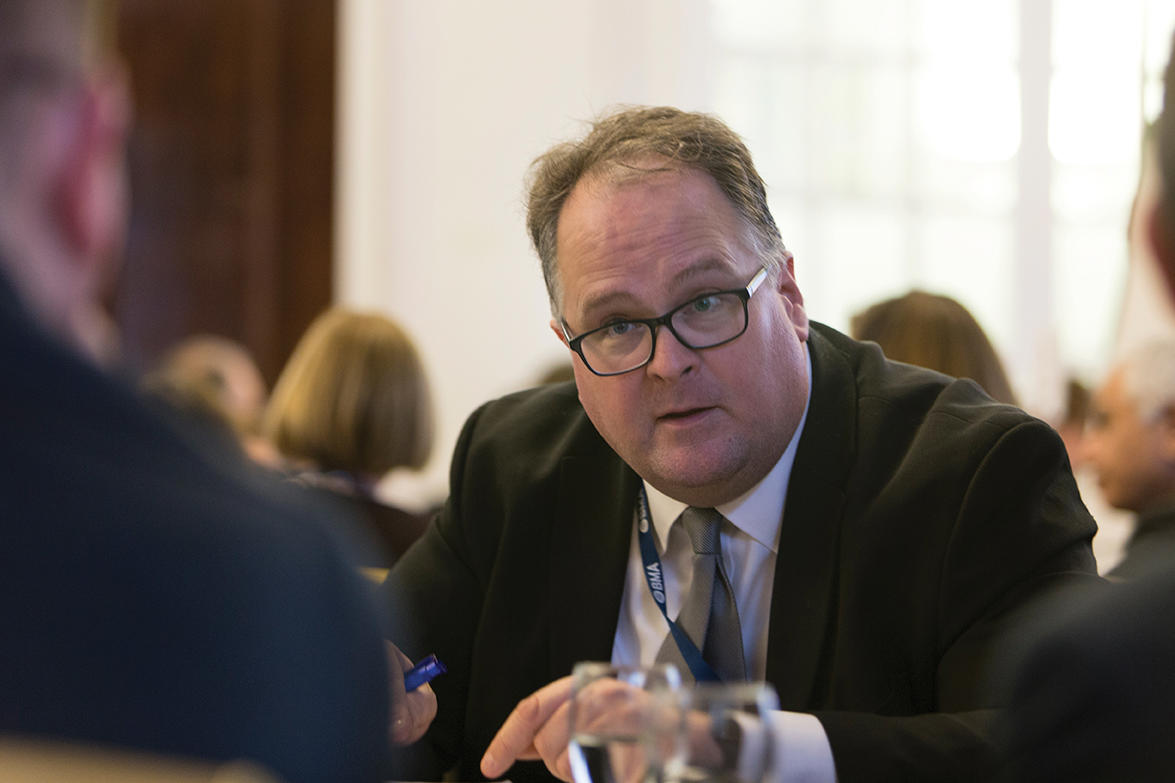Olamide Dada was a medical student when she met the then-president of the American Medical Association at a BMA event.
But she believes the advice she received then will stay with her for the rest of her career. ‘She [Patrice Harris] was the first Black female president of the American Medical Association, and we got chatting,’ says Dr Dada, who founded Melanin Medics, a charity that aims to improve diversity and representation in the medical profession by supporting Black doctors.
‘I was really inspired by her, and she said something that stuck with me, and that was to make sure you recognise the people in your life who are allies, who are mentors, and who are sponsors.
‘People who are allies have the ability to support you, to learn with you, and to amplify what you’re doing, and to be a helping hand. People who are mentors are able to give you something to learn from – they are invested in your progress.
 DADA: Recognise your allies
DADA: Recognise your allies
'And you must also recognise sponsors, who you don’t have this closer relationship with, but they’re able to create opportunities for you because of the positions they hold or the spaces they have access to.
'All it takes is one recommendation from a sponsor for you to be considered for an opportunity you normally wouldn’t have had access to.’
'This made an impression on Dr Dada, who is now a foundation year 1 in Kent, because she had previously focused on the mentor relationship rather than recognising the other people around who could offer support. ‘I think sometimes we try to fit people into one box as mentors, but there’s a lot more to it than that.’
Look after yourself
Words of advice can be purposeful or incidental, and they can come from anywhere. They can also be unwelcome, especially if unsolicited. But sometimes – as with the case of Dr Dada – they can have a profound effect, regardless of the source.
At this time of year, when new F1s are about to enter the workplace, it’s common on social media and elsewhere for doctors to pass on their advice or tips to the newest members of the profession – but what about the advice that they themselves had received?
Make sure you recognise the people in your life who are alliesDr Dada
 WRIGLEY: Make your mental health and wellbeing a priority
WRIGLEY: Make your mental health and wellbeing a priority
‘It might not sound like a great revelation, but the best piece of advice I received – from a GP colleague – is to make your own mental health and wellbeing a priority,’ says David Wrigley, deputy chair of the BMA and a GP in Lancashire.
‘I think that when you’re under pressure and stress at work, it can be hard to recognise that feeling or sensation of being overburdened, and it is important to take the time to look at what you could be doing to reduce that pressure. Talk to trusted colleagues about it, use the BMA wellbeing support services. Doctors are great ones for not seeking help and support when they need it, for just battling on regardless.
But we owe it to ourselves – and our patients – to recognise when things are building up and do something about it.’
‘Grandma standard’
When The Doctor approached doctors to ask about the best piece of advice they had received, not surprisingly, some themes persisted.
‘For me, it’s always treat your patients like your family should be treated,’ says Shrilla Banerjee, a consultant cardiologist in Surrey. ‘That was from my mentor, Dr Howard Swanton.’
It’s a similar story for Helen Ribee, a staff, associate specialist and specialty doctor working in emergency medicine in Staffordshire.
‘Give every patient the care you would want for your own family, is one my first registrar told me,’ she says. ‘It’s sometimes referred to as the grandma standard.’
Give every patient the care you would want for your own familyDr Ribee
Reading GP Joanne Byfleet recalls a pithy piece of advice gleaned from Baroness Cumberlege at a leadership event, which was ‘don’t stand between a dog and a lamp post’.
Dubai-based paediatrician Denis Hardy cites advice from an obstetrician, which is ‘before you take any action, ask yourself what would happen if you did nothing’.
Another piece of advice that sticks with him came from an endocrinologist, who would say they didn’t worry if a patient refused treatments, because it meant they learned the natural history of conditions.
Focus on goals
Selvaseelan Selvarajah, a GP partner in East London, is often invited to give talks to trainee doctors, and much of it is based on what has been said to him along the way.
‘The best piece of advice I’ve had is always to remind yourself that at work you are always replaceable – but you’re not replaceable to your loved ones. Because sometimes we get really focused on our careers, and what we need to achieve in our professional lives, that we lose focus on what our goals really are.’
This advice – which came from his own GP trainer – stays at the forefront of his mind when he is asked to take on new roles and opportunities, says Dr Selvarajah, and it helps him to sort out what he really wants to do. Another career-related piece of advice is to have a plan, but be flexible and prepared to change.
‘I change what I do every few years and – although I might jinx myself for saying so – that keeps me energised, despite having many roles. Being a GP gives me that flexibility. It’s about being adaptable and having a change mindset.’
Social medal merits
Advice can come from all sorts of sources – Dr Selvarajah credits a GP Facebook group for one of his favourites, for example – and this is certainly the case for London-based orthopaedic registrar Simon Fleming. He is a high-profile campaigner against bullying and discrimination in health services, and advises being open to ideas wherever they occur.
His first – that ‘failure is feedback and feedback is the breakfast of champions’ was heard in the queue for coffee at a conference in Canada in 2015.
The second came from a meme sent by a registrar when he was an F1, and that is: ‘Never let anyone tell you you’re too young to do something – a baby shark is still a fucking shark.’
The third was a suggestion from social media when he was designing the #HammerItOut campaign and that was, ‘don’t be a dick’. Probably a lesson for everyone.
What’s the best advice you’ve ever received? Email The Doctor

